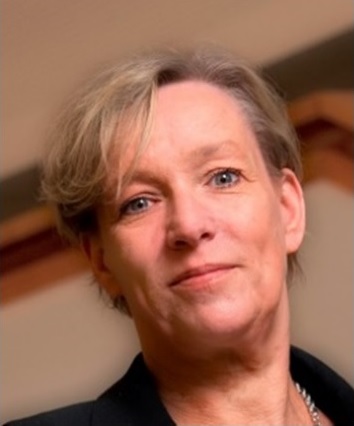Book Launch Webinar
China and Europe on the New Silk Road. Connecting Universities Across Eurasia. Edited by Marijk van der Wende, William C. Kirby, Nian Cai Liu, and Simon Marginson. Oxford University Press (2020).
View the Book Launch Webinar Here
5 November 2020
Online | Recording
China and Europe on the New Silk Road. Connecting Universities Across Eurasia
Report of the Webinar
In the first panel the book was introduced by the editors: Marijk van der Wende (Utrecht University), William Kirby (Harvard University), Nian Cai Liu (Shanghai Jiao Tong University), and Simon Marginson (University of Oxford).
Marijk van der Wende was thanked and complimented by her colleagues for her leadership in this project, which clearly brought to the fore that This is not a time to be silent.
Key messages included:
- International history of higher education shows that universities broadly share the same values and objectives in advancing knowledge and learning.
- US-China tensions widen opportunities to deepen Europe-China collaboration.
- Scientific cooperation and academic exchange with China should be continued. It is an essential response to the rising political tensions.
- Universities have a distinct role in society, especially in domains where governments may be less effective, in sustaining the global common good. Hence they have an inherently international agenda.
- Geopolitics should not be confused with (or undermine) academic work which is based on mutual trust and exercised in an open and transparent global science system.
- The EU has a key role to play in rebalancing cooperation with China; making it more sustainable by leveling the playing field and mitigating risk.
- Nationalist responses in the West risk to provoke government interventions in universities jeopardizing institutional autonomy and academic freedom; measures for which China is criticized.
- Strong investments and efforts in education are needed to overcome Europe’s lack of knowledge about China and to match China’s understanding of Europe. Such understanding requires a global rather than a purely Eurocentric perspective.
- Antagonistic frames and “cold war rethoric” can be detrimental to the openness of global research and learning communities. And inspire world views of no use in educating the next generation, which will have to solve the global challenges, such as climate change, together. Precisely because they are global!
First panel
with
Marijk van der Wende (Utrecht University), William Kirby (Harvard University), Nian Cai Liu (Shanghai Jiao Tong University), and Simon Marginson (University of Oxford)
The first panel highlighted how the current geopolitical turmoil and global pandemic are affecting the higher education context and discussed what the shifting global flows, the US-China trade war, and the upcoming EU-China trade agreement seem to imply for cooperation in higher education and R&D with China. Simon Baker (Times Higher Education) led the consecutive discussion deepening questions regarding the impact of the pending US presidential elections, the Covid crisis.
Second panel
with
Dominic Sachsenmaier (University of Göttingen), Futao Huang (Hiroshima University), Gerry Postiglione (Hong Kong University), and Zheping Xie (Tsinghua University)
The second panel discussed the role of academic values as a compass for global collaboration. Dominic Sachsenmaier (University of Göttingen), Futao Huang (Hiroshima University), Gerard Postiglione (Hong Kong University), and Zheping Xie (Tsinghua University) highlighted how the political tensions in and around China working out in academic work, with implications for institutional autonomy, academic freedom, and joint efforts towards science as the global common good. The following discussion led by Ben Upton (Research Europe) shed further light on how degrees of institutional autonomy and academic freedom may differ, also within China. And how much “global humanities” still remains Eurocentric, also as it is studied in China, thus contributing to a better understanding of Europe by China, rather than the other way around.
Third panel
with
Lynda Hardman (CWI Amsterdam & LIAMA), Marijk van der Wende (Utrecht University), Stijn van Deursen (Utrecht University), Barbara Sporn (Vienna University of Economics & Business)
The third and final panel discussed Conditions for balanced EU-China collaboration. It included Lynda Hardman (CWI Amsterdam & LIAMA), Marijk van der Wende, Stijn van Deursen (Utrecht University), Barbara Sporn (Vienna University of Economics & Business). It set out the actions and measures the EC needs to undertake to achieve a more balanced relationship with China. Using especially is stronger competencies (i.e. in research and trade) to level the playing field for IPR, technology transfer, mutual data access. From the ensuing discussion led by Koen Jonker (European Commission Joint Research Centre) it became clear that indeed the EU needs to reconsider it’s “Open strategy”, e.g. stepping up the conditions for participation of non-EU states in R&D and launching compliance guidance for dual-use research.
China and Europe on the New Silk Road
–
Connecting Universities Across Eurasia
Edited by Marijk van der Wende, William C. Kirby, Nian Cai Liu, and Simon Marginson
The new book China and Europe on the New Silk Road Connecting Universities Across Eurasia (Oxford University Press) was successfully launched On 5 November in a well-addended Zoom webinar.
The book addresses the opportunities, controversies and tensions surrounding the New Silk Road. It looks at how universities, while faced with challenges to their autonomy and values, stand firm to defend global cooperation.
Description
Opening chapters present the global context for the NSR, the development of Chinese universities along international models, and the history and outcomes of EU-China cooperation. The flows and patterns in academic cooperation along the NSR as they shape and have been shaped by China’s universities are then explored in more detail. The conditions for Sino-foreign cooperation are discussed next, with an analysis of regulatory frameworks for cooperation, recognition, data, and privacy. Comparative work follows on the cultural traditions and academic values, similarities, and differences between Sinic and Anglo-American political and educational cultures, and their implications for the governance and mission of higher education, the role of critical scholarship, and the state and standing of the humanities in China. The book concludes with a focus on the “Idea of a University”; the values underpinning its mission, shape, and purpose, reflecting on the implications of China’s rapid higher education development for the geo-politics of higher education itself.
Press Release
This is not a time to be silent.
This book addresses the opportunities, controversies and tensions surrounding the New Silk Road. It looks at how universities, while faced with challenges to their autonomy and values, stand firm to defend global cooperation.
The global order, based on international governance and multilateral trade mechanisms, built in the aftermath of World War II, is changing rapidly. Notably Brexit and the retreat of the USA from multilateralism have created waves of uncertainty, not the least in the field of higher education, regarding international cooperation, the free movement of students, academics, scientific knowledge and ideas.
Meanwhile, China is launching new global initiatives with its “New Silk Road”, is developing its higher education and research systems at speed, and is actively seeking to cooperate with academic partners along the New Silk Road.
It is unclear how these new relationships will affect European higher education and research; how this cooperation will contribute to addressing the global challenges we are all being faced with, and to the global common good. How this emerging reality can conform with current Western views and growing criticism of China concerning the key values of an open society, the belief in fundamental human rights, dignity, and the rule of law. And how the growing tensions between US and Chinese trade and security agendas and neo-nationalist trends influence collaboration. How can universities tackle these and stand firm to defend internationalization, autonomy, and academic freedom?
Clearly, this is not a time to be silent. Therefore the ambition of this book is to be open to the various perspectives and controversies surrounding the NSR, to build understanding for both sides, and to strengthen hope for continued global collaboration. It aims to critically explore the possible implications of the NSR for higher education and research cooperation between China and Europe, by looking at the main challenges and opportunities, including a consideration of the risks and uncertainties in the context of growing sensitivities in relationships between China and the West.
To this end, it presents a rich collection of contributions from an international and interdisciplinary group of scholars from Europe, Asia (notably China), the USA, Russia, and Australia, who were engaged in a two-year dialogue under the research project on “The New Silk Road: Implications for higher education and research cooperation between China and Europe”. It combines perspectives from anthropology, computer sciences, economics, education, history, law, political science, philosophy, science and technology studies, sinology, and sociology.
Central questions regard how academic mobility and cooperation are taking shape along the New Silk Road, under which conditions, defined by whom, and based on which values? And what, if any, difference will the New Silk Road make in the global higher education landscape?
The global Covid pandemic makes these findings only more relevant; how will it impact the main trends and issues in collaboration between China and the West? Which trends in academic cooperation with China will be sustained, enhanced, rebalanced, delayed, or even reversed? How will the EU position itself? And what is most at stake in the changing geopolitical order: international collaboration, competition, trust, open science, globalization as such?
The emerging new global context provides abundant food for thought and a wealth of questions for further research. The editors remain convinced that such research should be undertaken in close collaboration between China and the West.
About the editors:
Marijk van der Wende, Distinguished Faculty Professor of Higher Education, Utrecht University
William C. Kirby, T. M. Chang Professor of China Studies, Harvard University
Nian Cai Liu, Director of the Center for World-Class Universities, Shanghai Jiao Tong University
Simon Marginson, Professor of Higher Education, University of Oxford
More information:
Table of Contents | Author Information | For press and media inquiries, please Contact Us | Request a Copy for Review Here | View this Press Release as PDF.
The project is carried out by an international consortium coordinated by Utrecht University’s Centre for Global Challenges (UGlobe).
Site Notice & Privacy Policy






